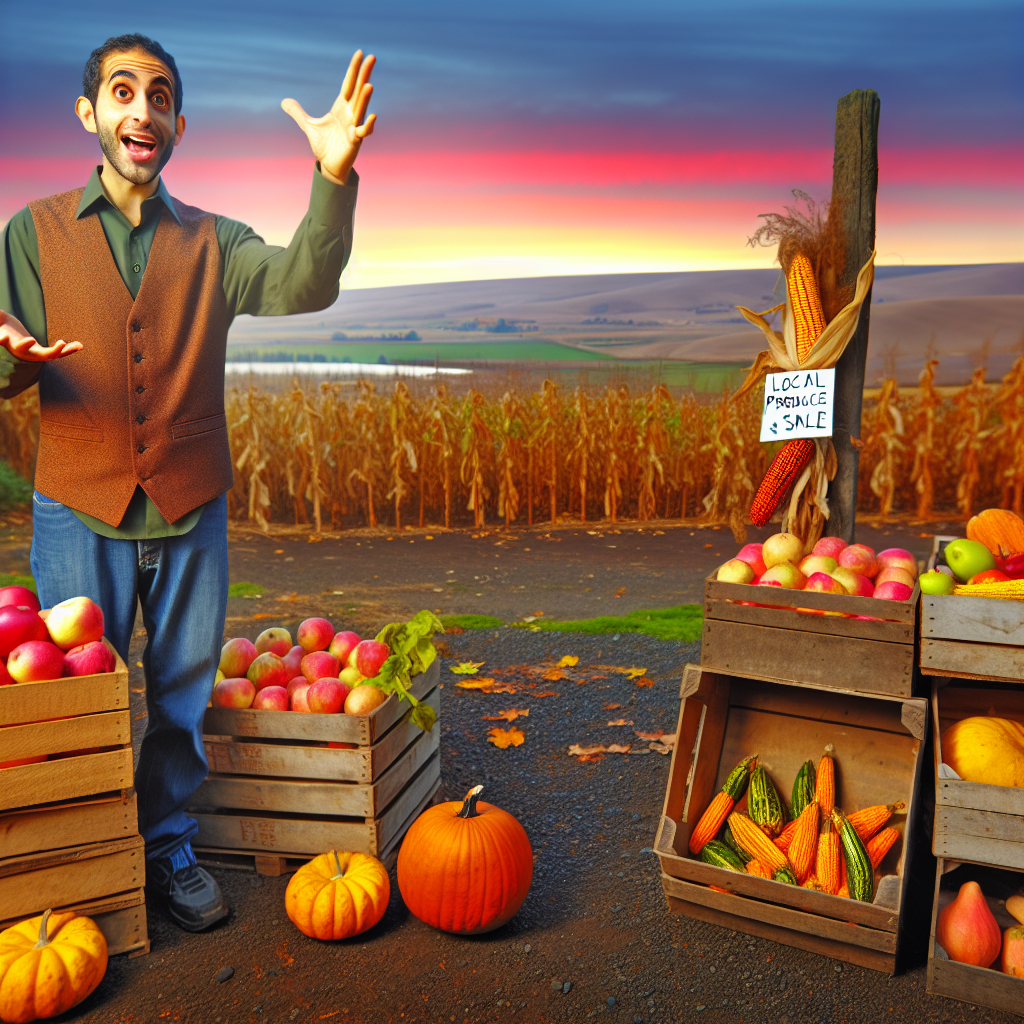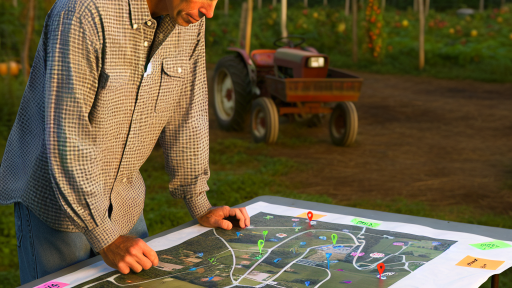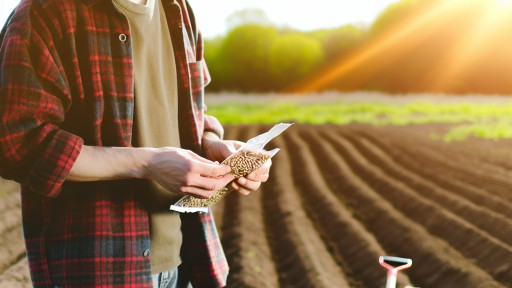Introduction to Agri-Tourism
Definition of Agri-Tourism
Agri-tourism refers to the practice of visiting agricultural areas for recreational purposes.
It combines agriculture with tourism to offer unique experiences to visitors.
This concept allows guests to engage with farming and nature.
Moreover, agri-tourism fosters a connection between consumers and food producers.
Importance of Agri-Tourism
Agri-tourism plays a vital role in supporting local economies.
It provides additional income streams for farmers and ranchers.
Visitors often enjoy farm tours, workshops, and local products.
These activities can increase awareness of sustainable farming practices.
Additionally, agri-tourism promotes rural development and conservation efforts.
It attracts tourists who seek authentic experiences away from urban areas.
As a result, agri-tourism helps preserve agricultural landscapes and traditions.
The Benefits of Combining Agri-Tourism with Direct Sales
Enhanced Revenue Opportunities
Agri-tourism increases revenue streams for farmers.
It allows direct sales of produce and value-added products.
This combination attracts more visitors and buyers.
Consequently, farms can diversify their income sources.
Transform Your Agribusiness
Unlock your farm's potential with expert advice tailored to your needs. Get actionable steps that drive real results.
Get StartedStronger Community Engagement
Agri-tourism fosters a deeper connection with the community.
Visitors engage directly with local agricultural practices.
This promotes a greater appreciation for farming.
As a result, community support for local farmers grows.
Educational Experiences for Visitors
Farm tours offer hands-on learning opportunities.
People can learn about sustainable practices and farming techniques.
Interactive workshops attract families seeking educational activities.
Thus, agri-tourism provides enriching experiences.
Promotion of Local Products
Agri-tourism showcases local foods and crafts.
This raises awareness about regional products.
Visitors often become repeat customers for local goods.
Furthermore, it boosts the local economy significantly.
Opportunities for Collaboration
Farmers can partner with local businesses for joint events.
Collaborations enhance marketing efforts and audience reach.
Co-hosted events can draw larger crowds than individual efforts.
This fosters a spirit of cooperation among local enterprises.
Key Elements of a Successful Agri-Tourism Business Model
Understanding Your Target Market
Identifying your target market is crucial for success.
Research potential visitors to understand their preferences.
Consider demographics such as age and interests.
Additionally, assess local tourism trends for better insights.
Creating Unique Experiences
Designing memorable experiences draws visitors to your farm.
Incorporate interactive elements like farm tours and workshops.
Furthermore, offer seasonal activities like fruit picking or festivals.
Effective Marketing Strategies
Utilizing diverse marketing strategies increases visibility.
Showcase Your Farming Business
Publish your professional farming services profile on our blog for a one-time fee of $200 and reach a dedicated audience of farmers and agribusiness owners.
Publish Your ProfileLeverage social media platforms to showcase your farm.
Collaborate with local tourism boards to attract more visitors.
Email newsletters can keep past visitors informed and engaged.
Quality Direct Sales Practices
Implementing effective direct sales practices boosts revenue.
Ensure your products are high quality and well-presented.
Set competitive prices while communicating value.
Hosting tasting events can encourage purchases and repeat visits.
Building Partnerships with Local Businesses
Collaborating with local businesses enhances your offerings.
Create package deals for visitors that include local restaurants.
Moreover, consider partnerships with nearby wineries or breweries.
Maintaining a Sustainable Approach
Adopting sustainable practices is essential for long-term success.
Implement eco-friendly farming techniques that attract visitors.
Highlight your sustainability efforts in marketing materials.
Also, educate visitors on local wildlife and conservation efforts.
Ensuring Excellent Customer Service
Providing outstanding customer service enhances visitor experiences.
Train staff to be friendly, knowledgeable, and welcoming.
Quickly address any concerns or complaints that arise.
Encourage feedback to continually improve your services.
See Related Content: Eco-Friendly Fertilizers For Sustainable Agriculture
Marketing Strategies for Agri-Tourism and Direct Sales
Leveraging Social Media
Social media plays a key role in modern marketing strategies.
Platforms like Instagram and Facebook allow farms to showcase their offerings.
Visual content, such as photos and videos, can captivate potential visitors.
Regular updates about events and seasonal products keep followers engaged.
Utilizing hashtags can increase visibility to a broader audience.
Building Partnerships
Strategic partnerships can enhance marketing efforts.
Collaborating with local businesses creates mutual benefits.
For example, teaming up with local restaurants can promote your farm-to-table concept.
Joint events and promotions can attract more visitors to both partners.
Also, consider partnerships with tourism agencies to reach a larger audience.
Providing Unique Experiences
Unique experiences can set your agri-tourism business apart.
Offer workshops or farm tours that educate visitors about your practices.
Hands-on activities, like fruit picking, enhance visitor engagement.
Special events for holidays or festivals can draw significant crowds.
Ensure that these experiences are well-promoted on your website and social media.
Effective Use of Email Marketing
Email marketing remains a powerful tool for direct sales.
Create an email list from your visitors and interested customers.
Regular newsletters can highlight seasonal offerings and upcoming events.
Include special promotions or discounts exclusively for subscribers.
Personalizing emails can increase engagement and boost sales.
Engaging with the Community
Community involvement strengthens brand loyalty.
Showcase Your Farming Business
Publish your professional farming services profile on our blog for a one-time fee of $200 and reach a dedicated audience of farmers and agribusiness owners.
Publish Your ProfileParticipate in local farmers’ markets to connect with potential customers.
Hosting community events can build awareness and encourage visiting.
Consider networking with local schools for educational field trips.
These connections reinforce your commitment to the community.
Utilizing Local SEO
Local SEO is vital for attracting nearby customers.
Ensure your business is listed on Google My Business.
Encourage satisfied visitors to leave positive reviews online.
Use location-specific keywords on your website for better search rankings.
This approach can significantly increase foot traffic to your farm.
Offering Online Sales Options
Online sales can boost direct sales significantly.
Create a user-friendly website to facilitate online orders from your farm.
Consider an e-commerce platform to showcase your products.
Promote your online store through social media and emails.
Offering delivery options can attract more customers, especially during busy seasons.
You Might Also Like: Sustainable Farming Through Agri-Tourism Practices
Legal Considerations and Regulations in Agri-Tourism
Understanding Local Laws
Agri-tourism operations must comply with local laws.
These regulations cover land use, health, and safety standards.
It’s essential to check zoning laws before establishing a business.
This will determine if agri-tourism is permissible in your area.
Health and Safety Regulations
Visitor safety is a priority in agri-tourism.
Ensure compliance with health codes to protect guests.
This includes food handling practices and sanitation standards.
Regular inspections can help maintain safety standards.
Insurance Requirements
Insurance is crucial for agri-tourism businesses.
Liability insurance protects against potential lawsuits.
Consider obtaining property insurance for your operations.
Additionally, worker’s compensation insurance may be necessary.
Permits and Licenses
Various permits may be required for agri-tourism operations.
Research which licenses apply to your specific activities.
This may include special permits for selling food or beverages.
Furthermore, check if you need an agricultural permit.
Environmental Regulations
Agri-tourism can impact the environment.
Complying with environmental regulations is vital.
Check for restrictions on waste disposal and land use.
Implementing sustainable practices can help mitigate impacts.
Future Trends in Agri-Tourism Law
Stay updated on changing regulations in agri-tourism.
New laws may emerge as the sector grows.
Engaging with local agri-tourism associations can provide insights.
Networking helps stay informed about legal changes.
Discover More: Integrating Livestock In Sustainable Farming Systems
Showcase Your Farming Business
Publish your professional farming services profile on our blog for a one-time fee of $200 and reach a dedicated audience of farmers and agribusiness owners.
Publish Your ProfileCase Studies of Successful Agri-Tourism Operations
Sunny Acres Farm
The farm hosts apple picking events every autumn.
Families enjoy hayrides and farm tours as part of the experience.
Additionally, Sunny Acres sells fresh apples and homemade apple cider directly.
This direct sales strategy boosts farm income during peak seasons.
Green Meadow Organic Farm
Located in Oregon, Green Meadow Organic Farm emphasizes sustainability.
The farm features workshops on organic farming practices.
Visitors learn about crop rotation and composting techniques firsthand.
Furthermore, Green Meadow hosts a weekly farmers market.
This market allows visitors to purchase organic produce directly from the farm.
Harvest Moon Vineyard
Harvest Moon Vineyard combines wine tasting with breathtaking views.
Visitors can tour the vineyard and learn about the winemaking process.
The vineyard offers seasonal events, such as grape stomping contests.
Additionally, Harvest Moon sells their wine directly to visitors.
This creates a unique experience, blending entertainment and sales.
Peaceful Acres Lavender Farm
Peaceful Acres Lavender Farm is known for its stunning lavender fields.
In summer, the farm hosts lavender festivals attracting many tourists.
Visitors can enjoy guided tours and lavender-based products.
The farm sells lavender essential oils and handmade soaps directly.
This combination leads to increased sales and customer engagement.
Gain More Insights: Building Brand Loyalty in Direct Farm Sales

The Role of Technology in Enhancing Agri-Tourism Experiences
Improving Visitor Engagement
Technology creates interactive experiences for visitors in agri-tourism.
For instance, virtual reality tours allow guests to explore farms remotely.
This innovation enhances visitor engagement and broadens accessibility.
Additionally, mobile apps provide information about farm activities.
These apps can include maps, schedules, and educational resources.
Streamlining Operations
Technology also streamlines operations for farmers and agritourism operators.
For example, online booking systems simplify the reservation process.
This system increases efficiency and reduces customer wait times.
Moreover, point-of-sale systems help track sales and inventory effectively.
Such advancements improve customer satisfaction and operational efficiency.
Marketing and Outreach
Digital marketing strategies enhance visibility for agri-tourism businesses.
Social media platforms showcase attractive farm attractions and activities.
High-quality photos and engaging posts attract more visitors.
Furthermore, email marketing campaigns keep customers informed about events.
These strategies help build a loyal customer base.
Data Collection and Analysis
Technology facilitates data collection from visitors during their stay.
Surveys and feedback forms gather insights about guest experiences.
This information guides future improvements to the agri-tourism offering.
Analytics tools provide valuable data on visitor demographics and preferences.
Showcase Your Farming Business
Publish your professional farming services profile on our blog for a one-time fee of $200 and reach a dedicated audience of farmers and agribusiness owners.
Publish Your ProfileSuch knowledge enables businesses to tailor their services better.
Case Studies of Successful Implementation
One example is Sunny Hill Farms, which uses virtual reality technology.
Their VR experiences allow visitors to engage with farm life before arrival.
Similarly, Green Pastures employs a comprehensive mobile app.
This app provides real-time updates on events and activities.
Such case studies illustrate the positive impact of technology in the sector.
Challenges and Solutions in Implementing an Agri-Tourism Business
Understanding Common Challenges
Agri-tourism businesses face various challenges during implementation.
Regulatory hurdles often create significant obstacles for new ventures.
Moreover, land use policies can limit available options for activities.
Seasonal variability also impacts visitor turnout and revenue streams.
Another challenge is integrating farming with hospitality services.
Limited marketing skills can hinder visibility and outreach efforts.
Regulatory Hurdles and Solutions
Understanding local regulations is crucial for any agri-tourism business.
Consulting with local zoning officials can provide clarity on requirements.
Joining local agricultural associations can offer valuable insights.
Additionally, obtaining necessary permits should be a priority.
Workshops focusing on compliance can be beneficial for new farmers.
Addressing Seasonal Variability
Seasonal variability can greatly affect the success of agri-tourism.
Offering year-round activities can help stabilize revenue streams.
Creating indoor attractions can alleviate reliance on favorable weather.
For instance, workshops and events can attract visitors every season.
Moreover, diversifying crops may appeal to different visitor demographics.
Integration of Farming and Hospitality
Integrating farming with hospitality services requires careful planning.
Training staff in both agricultural and hospitality skills is essential.
Creating packages that combine tours and stay experiences can boost interest.
Collaborating with local chefs can enhance the visitor experience.
Regular feedback from visitors can help improve both services.
Enhancing Marketing Skills
Marketing is vital for promoting agri-tourism businesses effectively.
Utilizing social media platforms can increase visibility significantly.
Creating engaging content showcases the unique offerings to potential visitors.
Participating in local events can build community connections and trust.
Collaborating with tourism boards can also enhance promotional efforts.
Strategizing for Long-Term Success
Developing a strategic plan ensures sustainability and growth.
Creating partnerships with local businesses can expand outreach.
Regularly assessing the market and adjusting strategies is crucial.
Engaging with visitors through surveys can guide future improvements.
Continuous learning and adapting will foster ongoing success.
Future Trends in Agri-Tourism and Direct Sales
Emerging Technologies
Technology will play a pivotal role in shaping agri-tourism and direct sales.
Mobile apps will enhance customer experiences on farms.
Virtual reality tours will showcase agricultural practices.
Showcase Your Farming Business
Publish your professional farming services profile on our blog for a one-time fee of $200 and reach a dedicated audience of farmers and agribusiness owners.
Publish Your ProfileAdditionally, blockchain technology will ensure transparency in direct sales.
Eco-Friendly Practices
Consumers increasingly demand sustainable and eco-friendly practices.
Agri-tourism farms will adopt organic methods to attract visitors.
Moreover, eco-friendly packaging will become standard for direct sales.
This shift towards sustainability supports local farming communities.
Diverse Experiences
Agri-tourism will expand to include diverse visitor experiences.
Workshops on farming methods will engage participants.
Food tastings featuring local products will promote regional cuisine.
Thus, offering unique experiences will enhance visitor satisfaction.
Collaborations and Partnerships
Collaboration between farmers and local businesses will grow.
Farms can partner with restaurants to create farm-to-table events.
Tourism boards will also promote agricultural regions through joint marketing.
Such partnerships will boost local economies and increase visibility.
Targeting Niche Markets
Niche markets will emerge within the agri-tourism sector.
Families seeking educational outings will drive this trend.
Health-conscious consumers will seek organic and farm-fresh foods.
Tailoring offerings to these groups can significantly increase revenue.
Enhanced Online Presence
A robust online presence will become essential for farms.
Social media marketing will attract potential visitors and customers.
Farms will need engaging content to showcase their practices.
Furthermore, online booking systems will streamline visitor planning.
Additional Resources
Trends in U.S. Local and Regional Food Systems: A Report to …
Agritourism and On-Farm Direct Sales Survey: Results for Vermont




